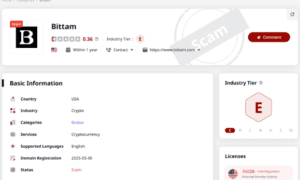Are you an investor looking to diversify your portfolio and tap into the potential rewards of the real estate market? If so, you may want to consider investing in a real estate investment trust (REIT). A REIT is a company that owns and operates income-generating real estate, such as shopping centers, apartment buildings, office buildings, or any real estate for that matter.
By investing in a REIT, you can potentially earn a steady stream of income (dividend yield) from the rental or sale of these properties, as well as benefit from the appreciation of the underlying real estate. REITs can offer a unique opportunity for investors to access a diverse range of real estate assets, without the hassle and cost of owning and managing individual properties. In this article, we’ll explore the different types of REITs, and dive deeper into the value of a grocery store REIT specifically.
Types of REITs
REITs are required to distribute at least 90% of their taxable income to shareholders in the form of dividends, making them an attractive option for investors seeking a steady stream of income.
There are several different types of REITs, each with its own unique investment focus. Here are a few examples:
- Equity REITs: These REITs own and operate physical properties, such as apartment buildings, shopping centers, and office buildings. They generate revenue from the rental or sale of these properties.
- Mortgage REITs: Instead of owning physical properties, mortgage REITs invest in mortgages and other real estate-related debt instruments. They generate income from the interest paid on these investments.
- Hybrid REITs: As the name suggests, hybrid REITs combine elements of both equity and mortgage REITs. They may own both physical properties and real estate-related debt instruments.
- Public REITs: These REITs are traded on major stock exchanges, making them accessible to individual investors.
- Private REITs: Private REITs are not traded on public exchanges, and as such, they may be more difficult for individual investors to access. They may be owned by a small group of investors or a single investor.
- Specialty & Retail REITs: Specialty REITs focus on a specific type of real estates, such as healthcare facilities, self-storage units, data centers, retail properties, or Grocery stores (such as Slate grocery REIT).
When considering a REIT investment, it’s important to understand the specific focus and strategy of the REIT, as well as the risks and potential rewards associated with that particular type of REIT.
Grocery Store REIT Benefits
One particularly unique and attractive specialty REIT is offered to accredited investors through First National Realty Partners. In the case of First National Realty Partners, their primary focus is that of a grocery store REIT.
One potential benefit of investing in a grocery store REIT is the stability of the industry. Grocery stores are a necessary part of daily life for most people, and as such, they tend to be relatively resistant to economic downturns. This means that a grocery store REIT may be less affected by market fluctuations than other types of REITs, providing a more stable investment for investors.
Another benefit is the potential for strong cash flow. Grocery stores generate a steady stream of revenue from the sale of goods and services, which can translate into regular and reliable dividend payments for investors. In addition, grocery store REITs may also benefit from the increasing trend of online grocery shopping, which can provide an additional source of income through fees for delivery and pickup services.
Grocery store REITs may also offer investors the opportunity to appreciate the underlying real estate. As grocery stores are typically located in prime retail locations, the value of the real estate may increase over time due to factors such as population growth, urbanization, and increasing property values in the surrounding area. This appreciation can provide investors with a capital gain in addition to regular dividend payments.
Grocery store REITs can also offer investors the opportunity to diversify their portfolios. By including a grocery store REIT as part of a larger investment strategy, investors can spread their risk across different types of assets and industries. This can help to reduce the overall volatility of the portfolio and potentially increase the chances of long-term success.
There are also tax benefits to consider when investing in a REIT. REITs are required to distribute at least 90% of their taxable income to shareholders in the form of dividends, which can be taxed at a lower rate than ordinary income. This can make REITs an attractive option for investors looking to minimize their tax burden.
Drawbacks to Grocery Store REITs
It’s important to keep in mind that, like any investment, investing in a grocery store REIT carries some risks. The value of the REIT’s underlying properties may fluctuate, and the performance of the REIT may be affected by a variety of factors, including changes in consumer preferences, competition from other retailers, and economic conditions. Additionally, REITs may be more sensitive to interest rate changes, as higher interest rates may make it more expensive for the REIT to borrow money for expansion or renovations.
Final Thoughts
Despite these risks, investing in a grocery store REIT can be a solid choice for investors who are looking for a stable, income-generating investment with the potential for appreciation. By diversifying their portfolio and taking advantage of the tax benefits of REITs, investors can potentially maximize their returns while minimizing their risk. For accredited investors interested in gaining exposure to this fantastic asset class, click here to check out First National Realty Partners today! Or for the non-accredited; check out our Mainvest review, a company also focused on brick-and-mortar businesses.



































